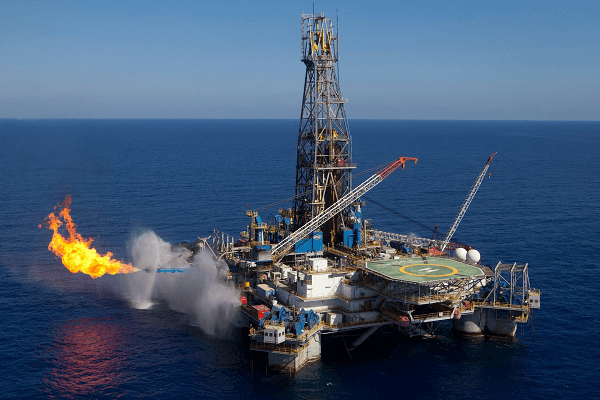Total petroleum receipts for 2023 have been revised downward from US$ 1,484.47 million to US$ 1,008.65 million, representing a 32 percent decrease owing to falling crude oil prices on the international market.
The adjusted average benchmark crude oil price has been revised to US$74.0 per barrel – down from the US$88.55 per barrel announced in the 2023 budget last November, the Minister of Finance Ken Ofori-Atta said during his presentation of the 2023 mid-year budget review on the floor of parliament in Accra.
A benchmark revenue crude oil price of US$88.55 per barrel was initially used to project petroleum revenues for 2023, in line with provisions of the Petroleum Revenue Management Act (PRMA) 2011 (Act 815) as amended. However, in view of recent global economic developments which have led to decreased demand for crude oil, the finance minister said it became necessary to step-down the expected average crude oil price per barrel.
During the mid-year fiscal policy review in parliament, Mr. Ofori-Atta also announced that the total petroleum receipts – that is proceeds from lifts and other petroleum receipts – as of December 2022 amounted to US$1.43billion.
“This amount comprises receipts from the 63rd to 68th liftings from the Jubilee field; the 20th and 21st liftings from the Tweneboa Enyenra Ntomme (TEN) field; and the 9th, 10th and 11th liftings from the Sankofa-Gye Nyame (SGN) field.
“In addition to the total receipts for the year under review, petroleum receipts that spilled over from 2021 to 2022 was US$14.82million – bringing the total amount distributed to US$1.44billion. This compares with the amount distributed of US$808.61million for the same period in 2021,” he stated.
Furthermore, he disclosed that a total of US$581.52million was transferred into the Ghana Petroleum Funds (GPFs) in 2022 compared to US$227.49million in 2021. Of the amount transferred, the Ghana Heritage Fund (GHF) received US$174.46million against US$68.25million in 2021; while the Ghana Stabilisation Fund (GSF) received US$407.06million compared to US$159.24million in 2021.
Meanwhile, the total amount transferred in 2022 from petroleum liftings and related proceeds to the Annual Budget Funding Amount (ABFA) was US$526.31million compared to US$352.79million in 2021.
This comes after the country raked in some US$1.42billion as oil revenue for 2022 – being the highest since commercial production began in 2011, while recording a 5.98 percent drop in production during the year under review.
The development marked an 82.3 percent increase in revenue from the US$783.32million recorded in 2021 from crude oil production of 55,050,391 barrels (bbls).
The increase in petroleum receipts at the time was attributed to a surge in benchmark price of the commodity on the international market, which closed at about US$68.17 per barrel in 2021 but reached US$100 per barrel by the end of 2022 on the global market.
However, domestic crude oil production had been declining for three consecutive years. A volume of 71,439,585 barrels were produced in 2019, but this declined to 66,926,806 barrels in 2020 – representing a drop of 6.32 percent.
It further declined to 55,050,391 barrels in 2021 (17.75 percent) and then to 51,756,481 barrels in 2022 (5.98 percent). This means the average decline over the three years is 10 percent.
Given the trend, stakeholders in the oil and gas sector cautioned that the earnings were unsustainable and urged government to push for further developments of petroleum resources to boost production.
For instance, the Public Interest and Accountability Committee (PIAC), in its last annual report, reiterated that: “There is a need for Ghana to speed up the sustainable development of its petroleum resources to reverse the decline in petroleum production, through the attraction of new investors as well as early completion of ongoing projects”.










